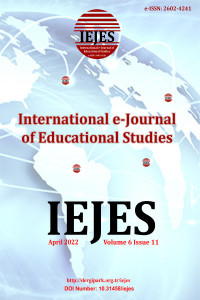Curriculum and Learning Policy In Sustainable Completed Class System In Gowa Regency, South Sulawesi
This study aims to describe the curriculum and learning of Sustainable Completed Classroom System Policy (SKTB) in Gowa Regency, South Sulawesi. This research used a qualitative approach that emphasis on a detailed and in depth study, seeking data collection, search and discovery of meaning. Emphasizing more on the process than on the results and using the logic of thinking inductively, the reason is that the approach can be used to understand the symptoms as a whole, deeply, and what they are and in accordance with the thinking of the people in them. Data collection techniques include interview, observation and documentation. Data analysis using analysis techniques from Miles and Huberman includes data reduction, data presentation, and drawing conclusions. The results showed that Sustainable Completed Class System in the implementation approach curriculum KTSP and Curriculum 2013, through a planning process syllabus, lesson plans, learning, assessment and follow up required school environment. In the implementation of instructional learning adapted to the context. Implementation of this policy develops a curriculum that is at the level of junior high school, the burden of learning with SKS. Thus the SKS learning burden for junior high schools can be determined that each learning load is in semester credit units, one credit load includes one hour face-to-face learning, one hour structured assignment and one hour of independent or unstructured activities. Learning load that must be taken by students is at least 102 credits and a maximum of 114 credits during the six semester learning period.
Curriculum and Learning Policy In Sustainable Completed Class System In Gowa Regency, South Sulawesi
This study aims to describe the curriculum and learning of Sustainable Completed Classroom System Policy (SKTB) in Gowa Regency, South Sulawesi. This research used a qualitative approach that emphasis on a detailed and in depth study, seeking data collection, search and discovery of meaning. Emphasizing more on the process than on the results and using the logic of thinking inductively, the reason is that the approach can be used to understand the symptoms as a whole, deeply, and what they are and in accordance with the thinking of the people in them. Data collection techniques include interview, observation and documentation. Data analysis using analysis techniques from Miles and Huberman includes data reduction, data presentation, and drawing conclusions. The results showed that Sustainable Completed Class System in the implementation approach curriculum KTSP and Curriculum 2013, through a planning process syllabus, lesson plans, learning, assessment and follow up required school environment. In the implementation of instructional learning adapted to the context. Implementation of this policy develops a curriculum that is at the level of junior high school, the burden of learning with SKS. Thus the SKS learning burden for junior high schools can be determined that each learning load is in semester credit units, one credit load includes one hour face-to-face learning, one hour structured assignment and one hour of independent or unstructured activities. Learning load that must be taken by students is at least 102 credits and a maximum of 114 credits during the six semester learning period.
___
- Ali, S. (2017). The sphere of authority: governing education policy in Pakistan amidst global pressures. Globalisation, Societies and Education, 15(2), 217–237.
- Bahri, S. (2017). Pengembangan kurikulum dasar dan tujuannya. Jurnal Ilmiah Islam Futura, 11(1), 15-34.
- Lubis, R. K. (2001). Centralizagtin and decentralization. London: Longman.
- Miles, M. B., & Huberman, A. M. (2013). Qualitative data analysis: an expanded sourcebook. California: Sage Publication. Inc.
- Muchlis, D. P. (2011). Kebijakan pendidikan dasar di provinsi sulawesi selatan. Jurnal Ilmiah Ilmu Administrasi Publik, 2(1), 49-58.
- Nugroho, R. (2008). Public policy. Jakarta: Elex Media Komputindo.
- Sugiyono. (2009). Metode penelitian pendidikan: pendekatan kualitatif, kuantitatif dan R & D. Bandung: Alfabeta.
- Sutjipto, S. (2015). Diversifikasi kurikulum dalam kerangka desentralisasi pendidikan. Jurnal Pendidikan Dan Kebudayaan. https://doi.org/10.24832%2Fjpnk.v21i3.193
